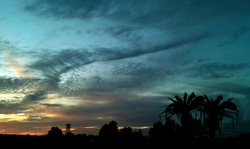
Faith is both a frail and a mighty thing. It can hold us through the storms of life, and again it can be easily lost. Faith. Easter invites us to believe what seems way too good to be true. In fact, two of the lectionary readings this Easter carried that theme. Click on the links below to read them...
Isaiah 65:17-25
Luke 24:1-12
First Isaiah repeats that God is about to do something new – in fact, to create a new heavens and a new earth. Totally new. Everything changed and different. The people he was talking to needed that, they longed for a different world. Isaiah has persuaded them to return to Israel from their exile in Babylon, but it’s been years and still the land is scarred by war and the temple remains in ruins. The people are discouraged, exhausted, and despairing. Can you imagine hearing these unbelievable promises given what they saw all around them? They must have thought Isaiah was completely out of touch. These promises totally unbelievable. They still seem unbelievable.
He says there will be no more pain, no more crying, no more children dying. Everyone will be able to live to 100 years old and better. People who are 100 years old will be considered young, even!
Those who build houses will be able to live in them, and those who plant and take care of crops will be able to eat them. Even today, those who do the actual work of building houses may not be able to afford to live in them, and those who labor in the fields may not have enough to eat.
The children we bring into the world will not ever face calamity. God will hear and respond to us even before we ask. Lions will stop bothering lambs, and the serpents of the world will eat dust. That's what happened in Eden, so Isaiah seems to be saying this new world will be a new Eden, a paradise.
He says our days will be like the days of a tree. I’m not sure what that means but I like the sound of it. Long days, calm and serene.
It all sounds good, too good to be true – too good to believe in. But that’s the thing about faith – it invites us to look beyond what IS and even what we think can possibly be. It asks us to expect the unexpected, to believe the unbelievable.
We see the difficulty and the joy of that in Luke’s account of that first Easter morning. There are the women, going to the tomb in their grief, prepared to anoint the body of Jesus. They don't know how they could roll back that big rock. Even that did not seem possible, but they went on anyway, going on faith.
They arrive to find it already moved. At the time, they would have thought grave robbers had been there. I’m sure they were worried, thinking maybe someone had disrespected the body of their beloved teacher. They look in and it’s worse than they feared – the body is gone. I’m sure they thought someone had taken it, and that would make their grief even worse - not being able to give Jesus' body a proper burial. I’m sure they did not expect what happened next. Who would? We might, having heard this story before, but if we place ourselves in their place, imagine our surprise at what happens next.
Two men in dazzling clothes appear, out of thin air! I would have bowed down and hid my face, too. As startling as their appearance is, what they say is even further beyond believability than what Isaiah said to their despairing Jewish ancestors. They say that the women should not look for the living among the dead.
You can imagine their thinking, “What? But he is dead. What was dead cannot come back to life.” Then maybe they remembered how Jesus brought Lazarus back to life. They were with him when he did that, and again at the dinner in Bethany the week before - the one where Mary Magdalene anointed Jesus with expensive oil. Lazarus had been there, too. Maybe some hope began to glimmer about the corners of their grief-stricken minds.
The mysterious men at the tomb remind the women of something Jesus said, which they did not understand at the time. He had predicted all this, the men say. Don’t you remember? "Oh yes, he said he must die, be buried, and come back to life." More glimmering around the corners, maybe a few shafts of light breaking through the heavy curtain of grief. What was it they said earlier? “He is not here, he is risen.” What if? No, it could not be, it’s too good to be true. But what if it is true? Angels heralded his birth, why not his return to life? These are faithful women, remember.
You can imagine their steps quickening as they return to the room where the men sit. They want to share this good news, the dawn breaking in their minds, hearts, souls. They burst into the room and tell the men, perhaps in gasping breaths, in bits and pieces, what happened! How joyful they must have been at that point!
And guess what? The men don't believe the women. They think it is "an idle tale." I don't know about you, but it seems some things don't change, much. Remember that it's hard to believe the unbelievable. People do not spontaneously rise from the dead. But maybe they believed, just a little. Peter goes to see for himself, and when he sees that what the women said was true, he begins to believe as well. When we hear this story and imagine ourselves there, we share the amazement of Peter and the women. We may find ourselves wanting to believe what seems too good to be true.
Both of these readings, the reading about a new Eden from Isaiah and the Resurrection story in Luke’s gospel, ask us to believe what is difficult to believe given what we know of the world. Isaiah asks us to believe there can be a world without grief, pain, and suffering, where there is fairness, justice, and peace. This is hard to believe when all around us we see otherwise. Luke asks us to believe that life wins when all our experience tells us that death always wins. Both readings asd us to believe that there is hope beyond distress and suffering, renewal beyond destruction, and life beyond death.
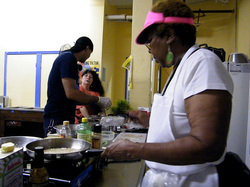
We must have faith that this is possible, but we also have to watch for it to happen in ways we do not expect. There’s a story about a man caught in a flood. You may have heard it. His neighbors come by and offer to help him evacuate, but he says, “No, God will save me, I have faith.”
The water rises and he has to retreat to the second floor, praying to God to rescue him. Some people come by in a boat and offer him a ride, but he says, “No, God will save me, I have faith.” The water climbs still higher and he has to go up on the roof. He does, still praying to God to rescue him. A helicopter comes by and they send down a ladder to help him escape, but he shouts, “No, I’m waiting for God to rescue me.” Alas, the floodwaters still rise and he perishes. Once in the afterlife, he has a little talk with God. He says, “Why didn’t you rescue me? I had faith in you, and you let me down.”
God says, “Well, first I sent neighbors who offered to help you evacuate. Then I sent those people in the boat, and finally I send the helicopter. What more did you expect?” I guess the guy expected a hand to come down out of heaven and pick him up.
It is important to have faith in better a better world, and to know it may happen in ways we can't imagine. We also have to work with God to make that happen. We can’t expect God to do it alone – that would be rather lazy and irresponsible of us. I believe God wants us to help create this something new. And when we do, when we work toward that new world, our eyes may adapt to the signs of it coming-to-be: healing coming to someone in pain, repair and restoration after devastation. We may see it in new ways to prevent infant deaths and to keep all children healthy and safe. We may notice it in people working to feed those who are hungry, to offer drink to those who are thirsty, and to build houses for people who cannot afford them. We may see people live to a healthy old age –through practicing living healthy lives and maybe through cures for diseases that once were fatal. That happens all the time, these days.
We may see it in moments, and maybe even hours and days of like trees – serene and quiet. We may see it in those who work for peace for all the world. The new world is coming to be, and we can help make that happen. The first step is to believe it can happen, and to keep that vision in mind as we do the little things that shape it into being.
And resurrection? Oh yes, we can see that as well. We can see that life breaks through what seems like death, all around us and in many ways – and this can strengthen our belief in the resurrection, in what seems too good to be true.
Life Breaks Through
by Tess Baumberger
Life breaks through.
Time and time again,
life breaks through what seems like death.
Even in the heart of winter,
Light breaks through
Life breaks through
And unseen growth occurs
Beneath the frozen ground.
Some plants need winter
In order to flower in spring.
Life breaks through,
Even through stone.
Laurel trees have the strength
To break through stone
In order to sustain their vibrant lives,
Life breaks through.
Even seemingly frail lives
Can survive in harshest circumstances.
Life is abundant and strong
It thrives in unusual places,
Even in the desert.
Life shines through thresholds,
Even the threshold of death.
It blooms and grows and changes
Through the stream of time.
Life breaks through walls we build to keep it out
And it emerges from prisons meant to keep life in.
Life breaks through, shines through
The world all around us,
And it breaks through in us as well
In the forms of faith, hope, love, and joy.
Life breaks through, again and again.
And so we celebrate Easter –
The triumph of life over death,
Of goodness over wrongdoing,
And of love over hatred and intolerance.
Let us celebrate the too-good-to-be-trues of this world, having faith in them. Let us go forth to celebrate the Resurrection, the hope of the world.
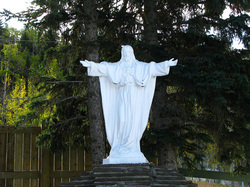
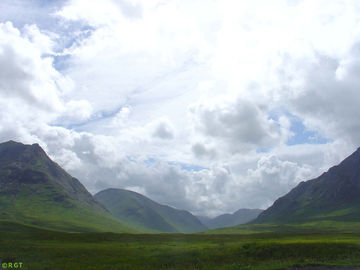
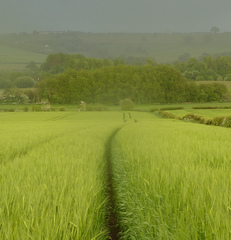


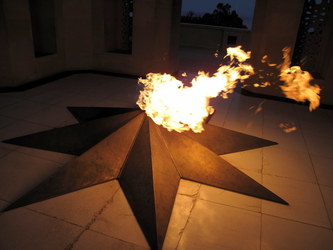
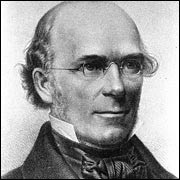
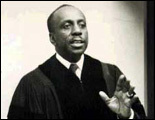
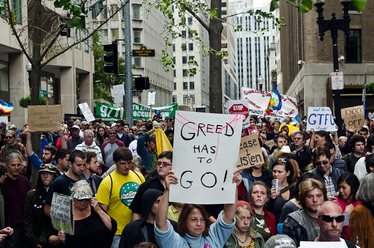
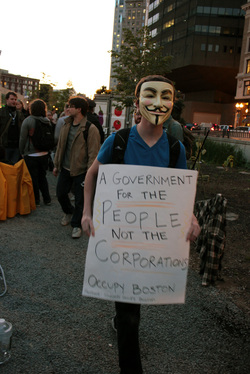
 RSS Feed
RSS Feed